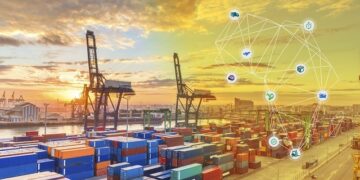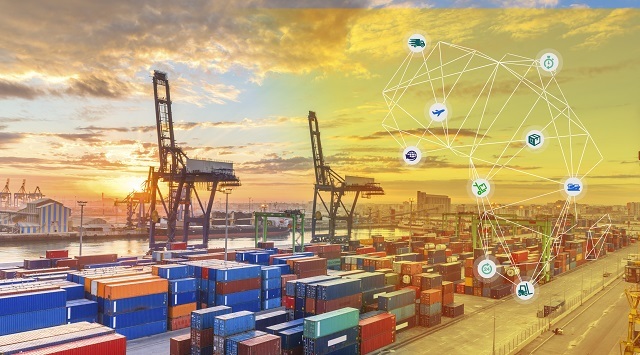By Ebi Kesiena
The United States and China have imposed new port fees on each other’s shipping firms, escalating tensions and turning global trade routes into the latest battleground in their long-running economic rivalry.
On Tuesday, both countries began enforcing the new charges, which apply to vessels transporting everything from consumer goods to crude oil. China said it had started collecting the special levies on ships that are U.S.-owned, operated, built or flagged, though Chinese-built vessels would be exempt. According to state broadcaster CCTV, exemptions would also apply to empty ships entering Chinese shipyards for repair.
The fees, which China said would be collected at the first port of entry on a single voyage or the first five voyages within a year, follow an annual billing cycle beginning April 17. The move comes in response to Washington’s decision earlier this year to impose similar fees on China-linked ships. U.S. President Donald Trump’s administration introduced the measure to weaken China’s dominance in global shipping and boost the U.S. shipbuilding industry.
An earlier probe under former President Joe Biden had concluded that Beijing used unfair trade practices to control the maritime, logistics, and shipbuilding sectors, findings that paved the way for the current penalties. In retaliation, China announced last week it would mirror the U.S. move, applying its own port fees from the same date.
Analysts predict that Chinese state-run carrier COSCO will be hit hardest, possibly absorbing almost half of the projected $3.2 billion cost of the tariffs by 2026. Beijing also took further action on Tuesday, sanctioning five U.S.-linked subsidiaries of South Korean shipbuilder Hanwha Ocean, accusing them of aiding a U.S. probe into Chinese trade practices. China has also opened its own investigation into the impact of the American measures on its shipping industry.
A Shanghai-based trade consultant, speaking anonymously, downplayed the immediate disruption, saying that businesses were already adapting to strained U.S.-China trade conditions.
“What are we going to do? Stop shipping? Trade is already pretty disrupted with the U.S., but companies are finding a way,” he said.
Despite the turbulence, shares in Shanghai-listed COSCO rose over 2% on Tuesday after the firm announced plans to buy back up to 1.5 billion yuan ($210 million) worth of shares within three months to maintain investor confidence. The company has yet to respond to media queries about the impact of the new fees.




































